For the second day in a row, China on Wednesday dismissed U.S. suggestions that the COVID-19 pandemic may have been triggered by a virus that leaked from a Chinese laboratory.
Responding to comments by FBI Director Christopher Wray, Foreign Ministry spokeswoman Mao Ning said the involvement of the U.S. intelligence community was evidence enough of the "politicization of origin tracing."
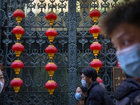 Full Story
Full Story
A state of emergency that had been periodically renewed by Moroccan authorities for the past three years to battle the Covid pandemic lapsed without extension on Tuesday.
First declared on March 24, 2020 as the pandemic swept across the globe, the emergency had allowed authorities to take exceptional measure to battle the spread of the virus, including lockdowns, border closures and restrictions on movement and gatherings, including sports events.
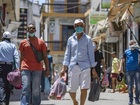 Full Story
Full Story
A crucial question has eluded governments and health agencies around the world since the COVID-19 pandemic began: Did the virus originate in animals or leak from a Chinese lab?
Now, the U.S. Department of Energy has assessed with "low confidence" in that it began with a lab leak, according to a person familiar with the report who wasn't authorized to discuss it. The report has not been made public.
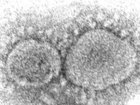 Full Story
Full Story
This month, 15 new members joined the St. Jude Global Alliance, a worldwide network of institutions working to improve survival rates for pediatric cancer and catastrophic diseases. In a historic first for the Alliance, these new partners are fundraising organizations rather than medical institutions, each dedicated to raising funds for hospitals in their home countries.
Each year, an estimated 400,000 children worldwide develop cancer. Globally, approximately 90% of children with cancer live in low- and middle-income countries, and far too many of these children lack access to adequate diagnosis and treatment. Compounding the problem is limited public funding for pediatric research and care, and imbalances in the technology available to raise needed funds. Most of these children will unnecessarily die from their diseases.
 Full Story
Full Story
World Health Organization chief Tedros Adhanom Ghebreyesus arrived on Saturday in Syria's quake-stricken city of Aleppo, state media reported.
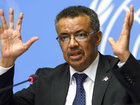 Full Story
Full Story
The Brazilian Ambassador to Lebanon Tarcísio Costa has participated in a ceremony alongside General Mohammad Kheir, head of the High Relief Committee (HRC) and representatives of Lebanese NGOs, marking the delivery of a Brazilian humanitarian donation of 38 water purifiers to Lebanon.
"The Embassy of Brazil in Lebanon is proud to announce that the Brazilian government has donated, on a humanitarian basis, solar-powered water purifiers to Lebanon," the embassy said in a statement.
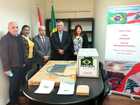 Full Story
Full Story
Africa's public health agency says countries with deadly cholera outbreaks on the continent have no "immediate access" to vaccines amid a global supply shortage.
The acting director of the Africa Centers for Disease Control and Prevention, Ahmed Ogwell, told journalists on Thursday that the agency is working with the World Health Organization and the vaccine alliance GAVI on ways to obtain more doses.
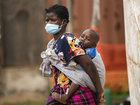 Full Story
Full Story
The declaration of a COVID-19 public health emergency three years ago changed the lives of millions of Americans by offering increased health care coverage, beefed-up food assistance and universal access to coronavirus vaccines and tests.
Much of that is now coming to an end, with President Joe Biden's administration saying it plans to end the emergency declarations on May 11.
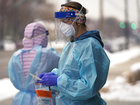 Full Story
Full Story
Russia's embassy in North Korea says the country has eased stringent epidemic controls in capital Pyongyang that were placed during the past five days to slow the spread of respiratory illnesses.
North Korea has not officially acknowledged a lockdown in Pyongyang or a re-emergence of COVID-19 after leader Kim Jong Un declared a widely disputed victory over the coronavirus in August, but the Russian embassy's Facebook posts have provided rare glimpses into the secretive country's infectious disease controls.
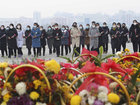 Full Story
Full Story
The first batch of cholera vaccines has reached rebel-held areas in the northwest of war-ravaged Syria, where the extremely virulent disease is spreading.
Syria's first outbreak since 2009, which the United Nations and local officials say has killed dozens of people since August, has been attributed in part to dilapidated infrastructure after more than a decade of conflict.
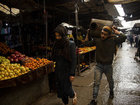 Full Story
Full Story



